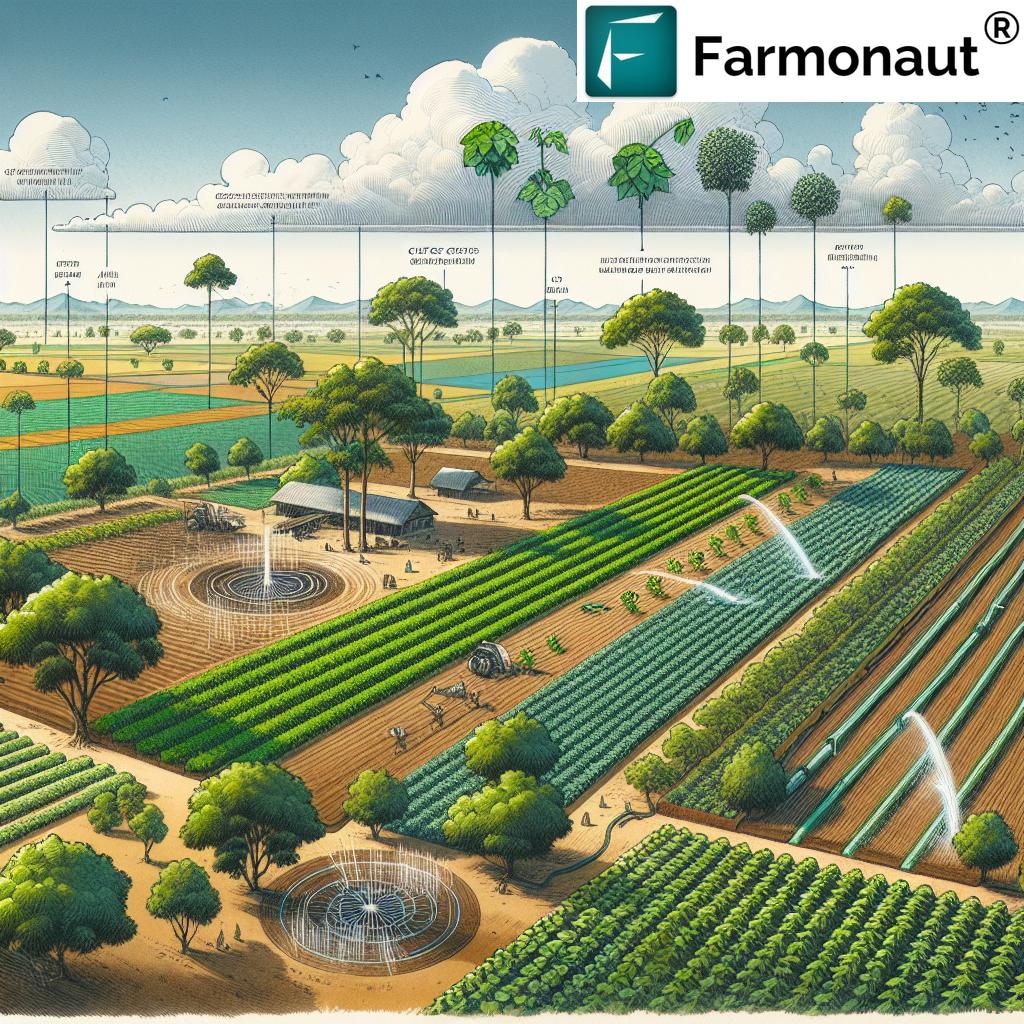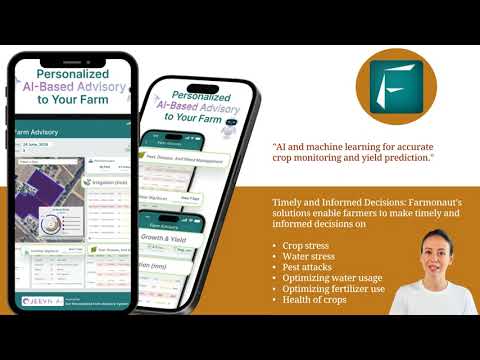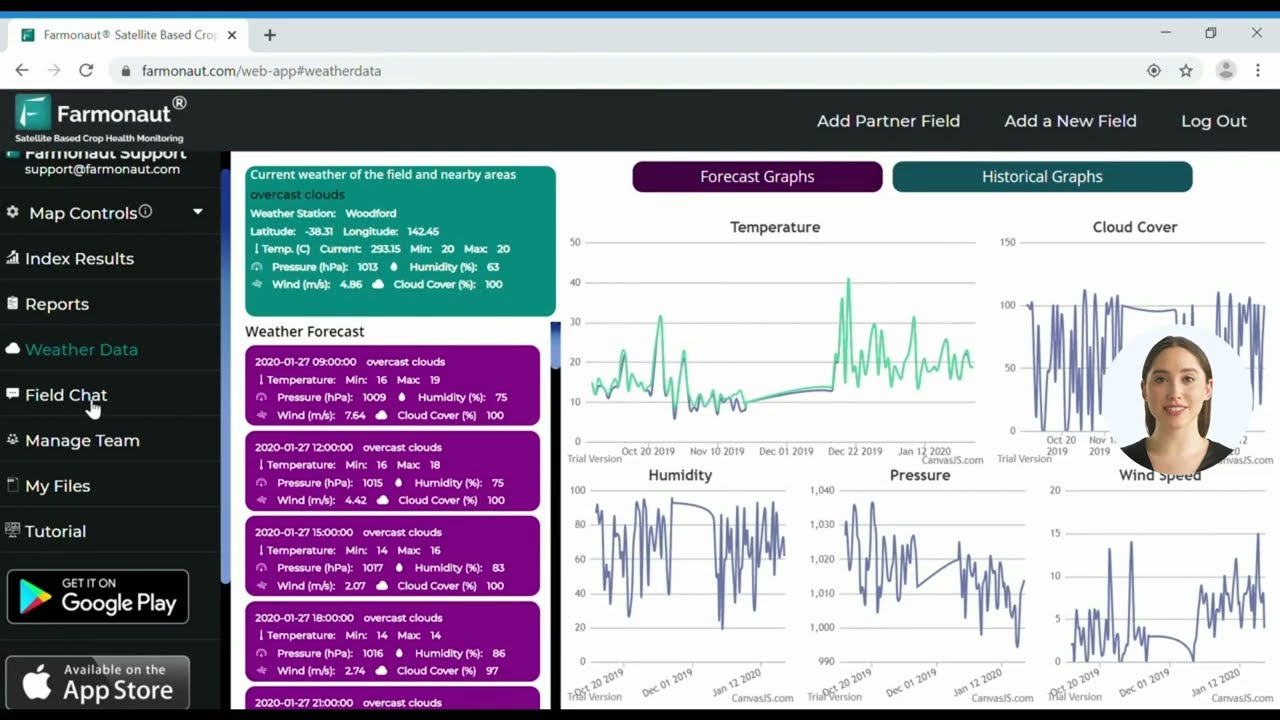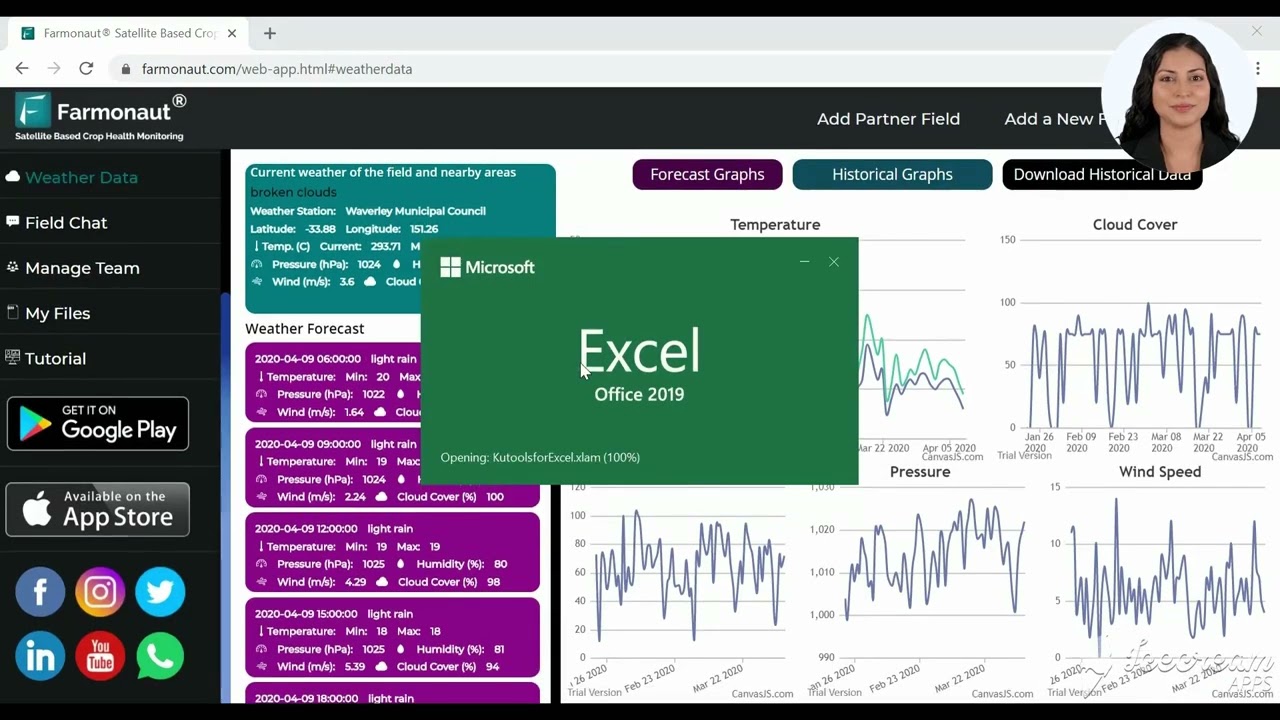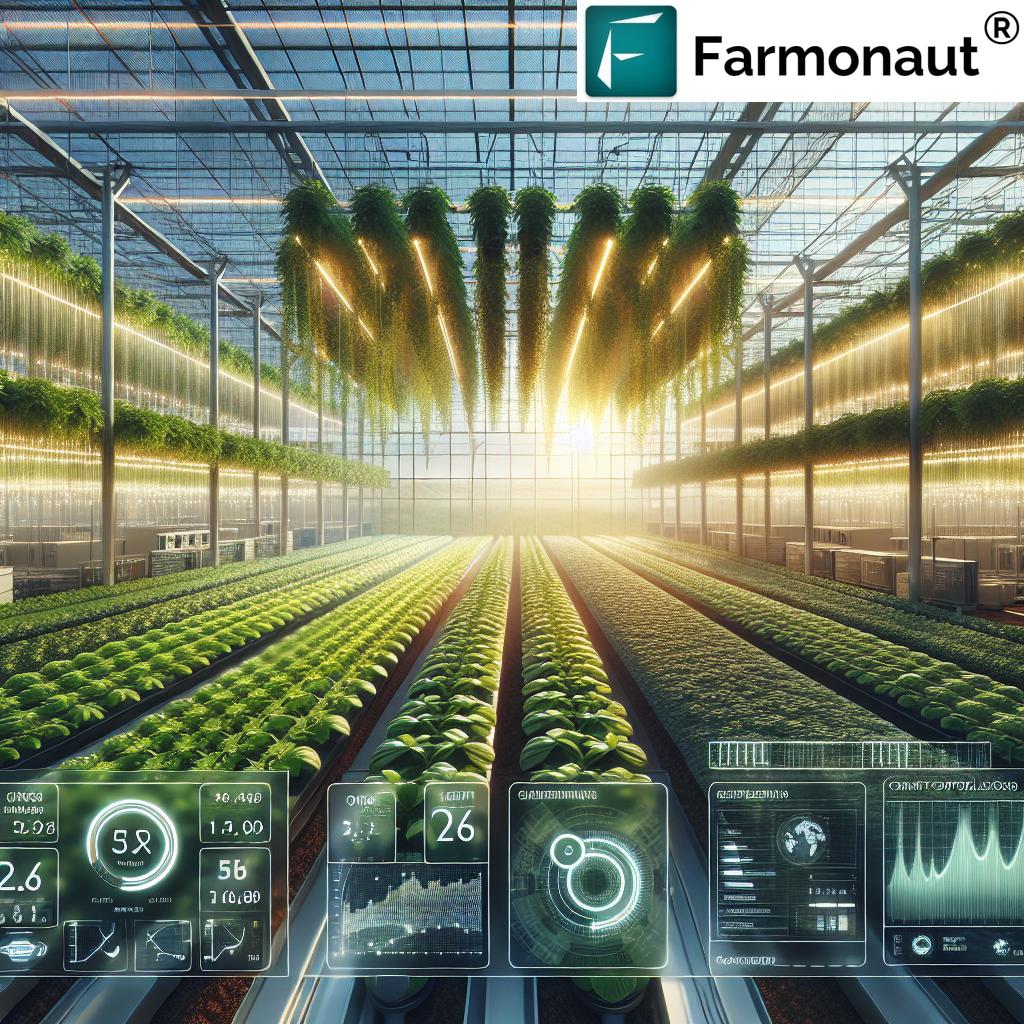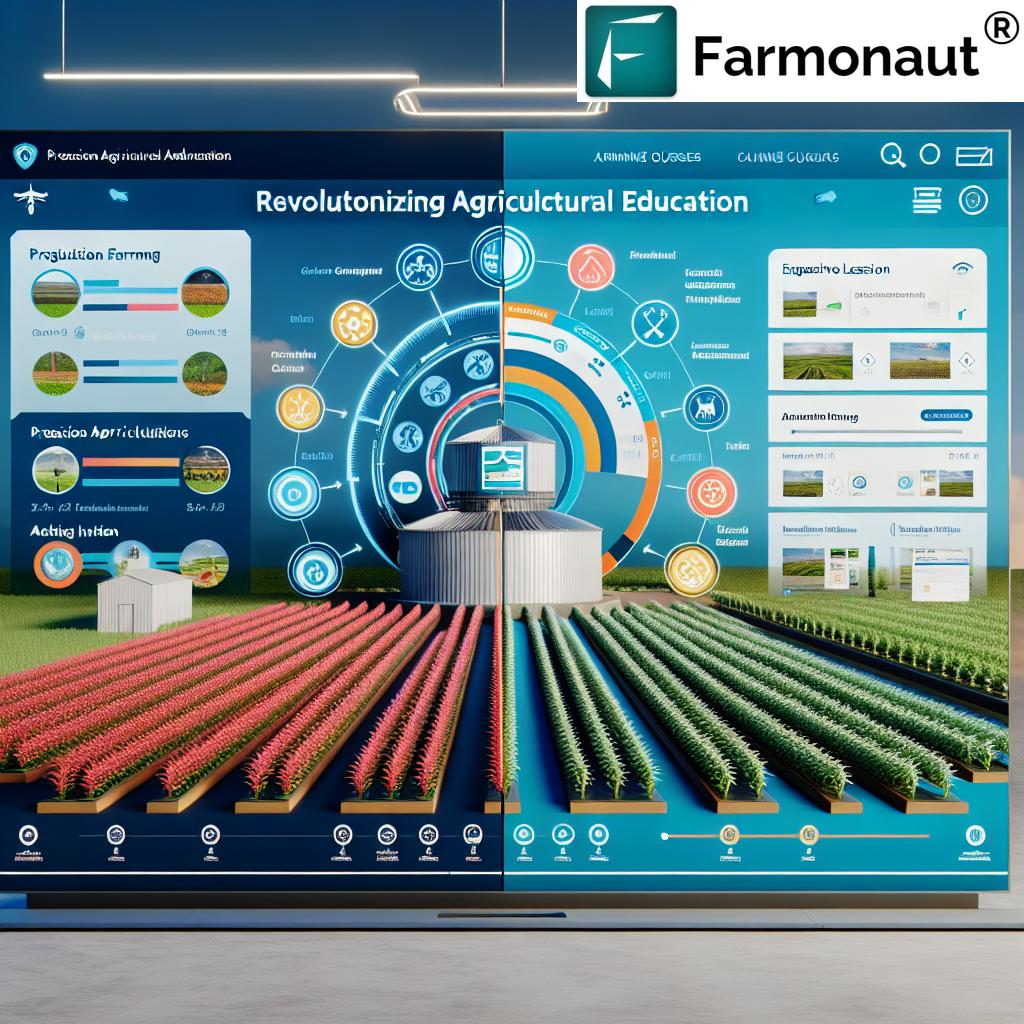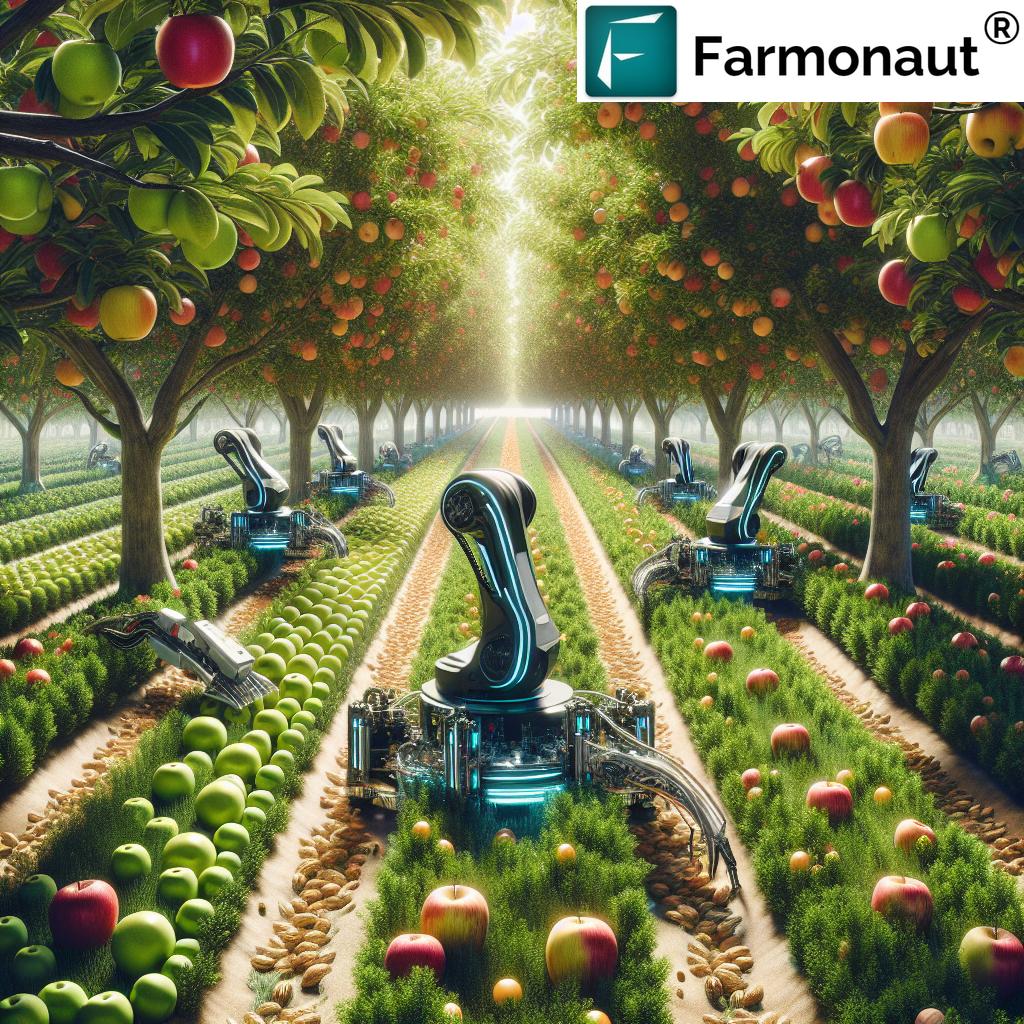- What is Climate-Smart Agriculture?
- Key Components of Climate-Smart Agriculture
- Comparison Table: Conventional vs. Climate Smart Agriculture
- 7 Shocking Benefits of Climate-Smart Agriculture
- Challenges and Solutions in Adoption
- Farmonaut’s Role in Advancing Climate-Smart Agriculture
- Frequently Asked Questions
- Conclusion
Importance of Climate-Smart Agriculture: 7 Shocking Benefits
Climate-Smart Agriculture (CSA) stands at the forefront of global efforts to transform how we produce our food. As we face the mounting challenges of climate change, with its unpredictable weather patterns and increasing resource scarcity, the need for more sustainable, resilient, and productive agricultural systems has never been greater.
In this comprehensive guide, we’ll uncover the 7 most shocking and impactful benefits of climate-smart agriculture—from boosting crop yields and soil health, to defending food security, supporting farming communities, and mitigating greenhouse gas emissions. We’ll also explore essential practices, Farmonaut’s game-changing tools, and how together we can build a more resilient future for agriculture.
Understanding Climate-Smart Agriculture: A Comprehensive Approach
Climate-smart agriculture isn’t a single technique—it’s a framework that encourages the adoption of context-specific strategies across different regions and farming systems. This approach integrates three main objectives:
- Sustainably increasing productivity and incomes
- Adapting agricultural systems to climate change
- Reducing greenhouse gas emissions from agriculture
By tailoring practices to local conditions and needs, CSA aims to simultaneously achieve food security, environmental sustainability, and improved livelihoods for farmers worldwide (FAO).
Primary Drivers of Climate-Smart Agriculture
- Soil Health and Conservation
Healthy soils are the foundation of productive agriculture. Practices like conservation tillage, crop rotation, and cover cropping help preserve soil structure, reduce erosion, and increase organic matter. - Efficient Water Management in Agriculture
Water scarcity is a growing concern. Smart irrigation systems (such as drip irrigation), rainwater harvesting, and drought-resistant crop varieties ensure optimal use of water resources, reduce waste, and enhance crop yields. - Diversified Agroforestry Systems
Integrating diverse crops, livestock, and agroforestry systems enriches biodiversity and protects against climate shocks, pests, and market fluctuations, providing a natural buffer against change. - Climate Information Services for Farmers
Access to real-time weather forecasts, pest alerts, and advisories empowers farmers to make informed decisions about planning, planting, input selection, and harvesting. - Adoption of Climate-Smart Technologies
Remote sensing, AI-driven advisories, and digital tools—like those offered by Farmonaut—enable farmers to monitor crop health, detect threats early, and fine-tune their use of resources for maximum efficiency.
The importance of climate-smart agriculture lies in its holistic approach, where multiple objectives—higher yields, improved soil health, reduced emissions, and greater resilience—can be achieved simultaneously.
Comparison Table of Conventional vs. Climate-Smart Agriculture Practices
Farmonaut API gives developers real-time access to satellite crop data, critical weather forecasts, and field analytics—available via API (Developer Docs).
7 Shocking Benefits of Climate-Smart Agriculture
When talking about the importance of climate-smart agriculture, these seven benefits truly stand out—impacting our food systems, our environment, and our collective resilience:
-
1. Increasing Food Security Through Productivity and Stability
- CSA practices improve both the reliability and the volume of food produced by increasing crop yields and reducing climate risk.
- Efficient water management in agriculture and weather-adapted planting schedules mean more harvests and fewer failures, especially in vulnerable areas.
- Adopting diversified farming systems and using climate information services for farmers greatly reduce food insecurity during drought, flood, or extreme weather patterns.
-
2. Dramatic Economic Gains for Farmers
- CSA practices cut input costs, optimize resource use, and minimize crop losses—directly increasing farm profitability.
- Precision advisory and fleet management tools, such as those in Farmonaut’s platform, help farmers avoid waste and gain better prices.
- Supporting services like crop loan and insurance verification ensure faster, fairer financial access.
-
3. Soil Health and Conservation: The Foundation of Sustainable Yield
- Actions like cover cropping, reduced tillage, and organic amendments (biochar, compost) protect and regenerate soil.
- CSA techniques elevate soil organic matter, boost beneficial microbes, and ensure nutrient cycling for future generations.
- Farmonaut’s satellite-based soil health monitoring enables rapid detection of degradation—faster than manual scouting.
- Explore Farmonaut’s carbon footprinting service to track soil carbon gains and reduce emissions.
-
4. Resilience Against Climate Change & Extreme Events
- CSA encourages planting climate-resilient crops, diversified systems, and responsive farm management.
- With precise, location-based climate information services for farmers and early warning systems, farms adapt in real time to shifting climate risks—avoiding catastrophic losses.
- Farmonaut’s platform delivers AI-based advisory and alerts to help farmers make timely, risk-reducing decisions.
-
5. Reducing Greenhouse Gas Emissions in Farming
- Switching to low-input, efficient irrigation, cover cropping, reduced tillage, and organic amendments cuts waste and lowers greenhouse gas emissions.
- Agroforestry systems and carbon sequestration help offset emissions and create climate-positive supply chains.
- Use Farmonaut’s carbon footprint tracking tools to monitor and reduce field-level emissions.
-
6. Improved Resource Use and Environmental Sustainability
- With smart irrigation and remote sensing, resource application (water, fertilizer, pesticide) is precisely targeted only where and when needed.
- This reduces pollution, preserves local ecosystems and water tables, and minimizes harmful runoff.
- Farmonaut provides real-time maps and AI advice, enabling farmers to address pest or nutrient issues immediately—supporting sustainable farming practices at scale.
-
7. Transparent Supply Chains and Enhanced Farmer Livelihoods
- Blockchain-based traceability brings transparency from farm to table—critical for food companies and consumers demanding ethical, sustainable supply chains.
- Farmonaut enables blockchain-enabled product traceability for brands and cooperatives.
- Farmers gain market trust, access premium markets, and reduce payment and fraud risk through transparent value chains.
Overcoming Challenges in Adopting Climate-Smart Agriculture
Despite clear advantages, adoption of climate-smart agriculture faces hurdles:
- Knowledge and Capacity Gaps:
- Many farmers require targeted training, demonstrations, and accessible technology.
- Solutions: Farmonaut app and Jeevn AI advisories deliver field-specific guidance and knowledge directly to farmers’ phones and computers—building capacity one field at a time.
- Limited Access to Resources:
- Financial constraints and lack of access to modern tech can slow the spread of sustainable practices.
- Solutions: Farmonaut’s flexible, affordable subscription and insurable crop verification lower financial barriers for all farm sizes, from smallholder to agribusiness.
- Policy and Market Challenges:
- Lack of incentive structures, favorable policies, or market access can reduce farmer motivation.
- Solutions: By providing evidence-based data for government schemes and allowing easy integration into national development plans, Farmonaut improves policy support for change.
Farmonaut: Empowering Climate-Smart Agriculture with Digital Innovation
Farmonaut is leading the digital transformation of agriculture—bringing climate-smart solutions to hundreds of thousands of farmers and businesses worldwide.
- Satellite Crop Health Monitoring: Get real-time insights into crop health, soil moisture levels, and stress detection with easy-to-use Android, iOS, web apps, and API.
- AI-powered Climate Information Services for Farmers: The Jeevn AI system delivers bespoke weather forecasts, immediate crop advisories, and pest risk alerts—helping farmers adjust planting, harvesting, and input use.
- Efficient Resource and Fleet Management: Tracking resource application, machinery, and logistics improves input efficiency and cuts waste—vital in a resource-constrained world. See the fleet management module for agribusinesses.
- Blockchain-based Product Traceability: By giving supply chain transparency (see traceability tools), Farmonaut supports food brands and exporters in meeting rising consumer demand for proof of sustainability and origin.
- Carbon Footprinting for Agriculture: Farmonaut’s dashboard tracks field-level emissions and supports carbon management, enabling farms to benchmark and improve sustainability for both local compliance and global market access.
- Scalable, Flexible Solutions: From large-scale farm management tools for companies/governments to simple field mapping for individual growers—Farmonaut adapts to your operation, not the other way around.
- Multi-Platform Access: Use on Android, iOS, browser, or integrate into your own systems via API.
Frequently Asked Questions
What is climate-smart agriculture (CSA)?
Climate-smart agriculture is a comprehensive approach to agriculture that integrates sustainable productivity, adaptation to climate change, and reduction of greenhouse gas emissions. It involves the implementation of practices such as efficient water management, soil health conservation, diversified farming, use of technology, and climate information services to make agriculture more resilient and productive.
How does climate-smart agriculture contribute to food security?
CSA improves food security by increasing crop yields, stabilizing production amid climate variability, and diversifying income streams for farmers. Access to timely weather forecasts and responsive practices ensures reliable harvests and reduces the risk of food shortages.
Can small-scale farmers benefit from climate-smart agriculture?
Absolutely. Many CSA practices, such as conservation tillage, rainwater harvesting, and integrated pest management, are cost-effective and easily scalable for smallholder farmers. Platforms like Farmonaut democratize access to smart advisory and monitoring services, making climate-smart farming accessible to all.
What are the main barriers to adopting CSA?
Main barriers include limited knowledge and capacity, lack of financial resources or market access, and insufficient policy support. Overcoming these requires investment in extension services, digital literacy, and supportive regulatory frameworks.
How does Farmonaut help promote climate-smart agriculture?
Farmonaut equips farmers with real-time satellite data, AI advisories, weather data, and powerful management tools to promote efficient, resilient, and sustainable farming. Its multi-platform access and affordable pricing make advanced precision agriculture a reality for all scales of operation.
Conclusion: Building a Resilient Future with Climate-Smart Agriculture
The importance of climate-smart agriculture cannot be overstated. By integrating sustainable farming practices, enhancing productivity, and developing robust adaptation strategies, we not only feed the world but also preserve our planet for future generations.
Through a comprehensive framework of tailored practices—from soil health management to efficient water use and digital information services—we can build resilient farming systems that deliver food security while mitigating the impacts of climate change.
With innovative tools like Farmonaut driving affordable, data-driven solutions, anyone—from smallholder to large agribusiness—can participate in the agricultural revolution.
Let’s make climate-smart agriculture a foundation of our food future—for better health, prosperity, and sustainability, worldwide.


